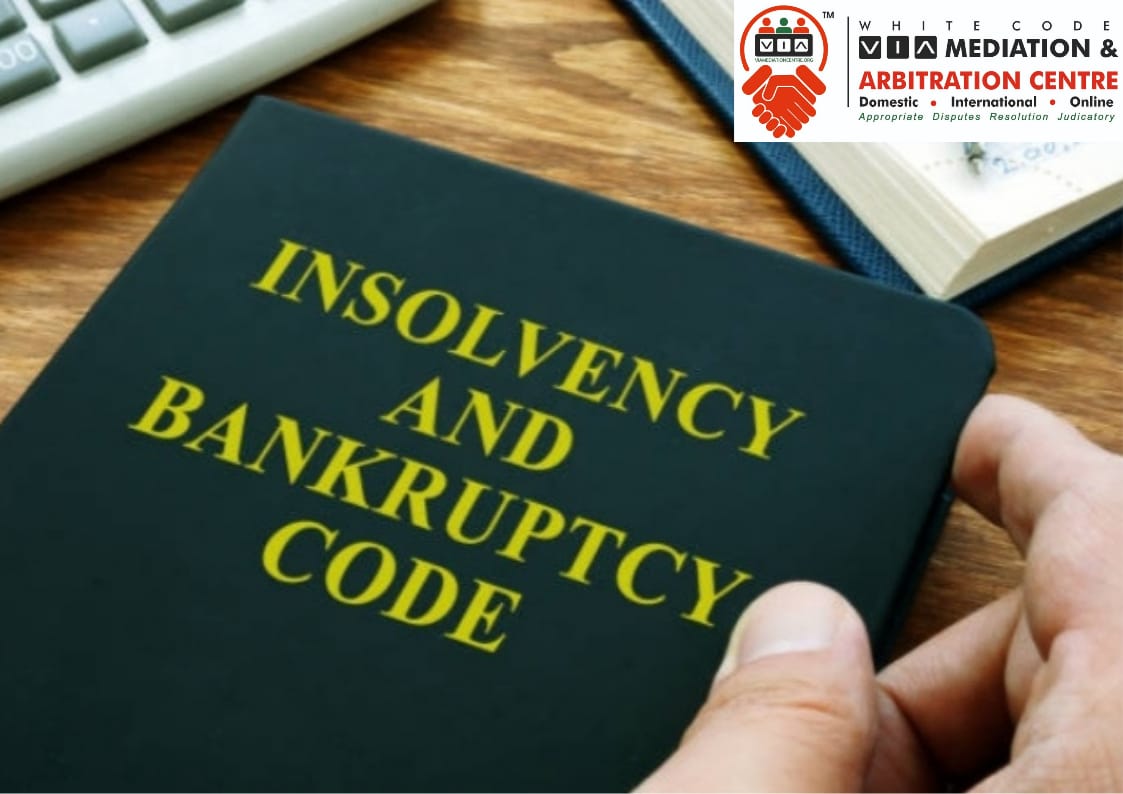Latest News
ANALYSIS OF SECTION 2(3) OF ARBITRATION AND CONCILIATION ACT

ANALYSIS OF SECTION 2(3) OF ARBITRATION AND CONCILIATION ACT
Section 2(3)- “This Part shall not affect any other law for the time being in force under which certain disputes may not be submitted to arbitration.”
Arbitration and Conciliation Act 1996.
According to section 2(3) of the Arbitration and Conciliation Act, 1996, certain disputes are excluded from the act and are non-arbitrable.
In the case of A. Ayyasamy vs A Paramasivam & Ors. Civil appeal nos. 8245-8246 of 2016
Judgement was given by the division bench of J. A.K. Sikri and J. D.Y. Chandrachud dated 4 October 2016 in which J. A.K. Sikri stated:
“In the instant case, there is no dispute about the arbitration agreement since there is a specific arbitration clause in the partnership deed. However, the question is as to whether the dispute raised by the respondent in the suit is incapable of settlement through arbitration. As pointed out above, the Act does not make any provision excluding any category of disputes treating them as non-arbitrable. Notwithstanding the above, the Courts have held that certain kinds of conflicts may not be capable of adjudication through the means of arbitration. The Courts have held that certain disputes like criminal offences of a public nature, disputes arising out of illegal agreements and disputes relating to status, such as divorce, cannot be referred to arbitration. The following categories of disputes are generally treated as non-arbitrable:
(i) patent, trademarks and copyright;
(ii) anti-trust/competition laws;
(iii) insolvency/winding up;
(iv) bribery/corruption;
(v) fraud;
(vi) criminal matters.”
J. D.Y. Chandrachud stated:
"Ordinarily every civil or commercial dispute whether based on contract or otherwise which is capable of being decided by a civil court is in principle capable of being adjudicated upon and resolved by arbitration “subject to the dispute being governed by the arbitration agreement” unless the jurisdiction of the Arbitral Tribunal is excluded either expressly or by necessary implication. In Booz-Allen and Hamilton Inc. v. SBI Home Finance Ltd., this Court held that adjudication of specific categories of proceedings is reserved by the legislature exclusively for public fora as a matter of public policy. Though not solely reserved for adjudication by courts and tribunals, specific other categories of cases may by necessary implication stand excluded from the purview of private fora. This Court set down particular examples of non-arbitrable disputes such as:
(i) Disputes relating to rights and liabilities which give rise to or arise out of criminal offences;
(ii) Matrimonial disputes relating to divorce, judicial separation, restitution of conjugal rights and child custody;
(iii) Matters of guardianship;
(iv) Insolvency and winding up;
(v) Testamentary matters, such as the grant of probate, letters of administration and succession certificates; and
vi) Eviction or tenancy matters governed by special statutes where a tenant enjoys special protection against eviction, and specific courts are conferred with the exclusive jurisdiction to deal with the dispute.”
VIDYA DROLIA CASE ANALYSIS
Vidya Drolia I
Vidya Drolia & Ors. v. Durga Trading Corporation – 2019
A tenancy agreement was signed between the landlord and the tenant in Vidya Drolia & Ors. v. Durga Trading Corporation regarding several godowns and other structures. The maximum tenancy length was ten years. An arbitration clause was included in the tenancy agreement. The landlord demanded that the tenant evacuate the property after ten years. The landlord served the tenant with an arbitration notice after the renter failed to vacate the premises. The landlord requested the appointment of an arbitrator under Section 11 of the Arbitration Act. The tenant's objections to the dispute's non-arbitrability were overruled by the High Court of Calcutta, which referred the case to arbitration.
Meanwhile, the Court passed its decision in the Himangni Enterprises case (ruling that landlord and tenant disputes governed by the TP Act would not be arbitrable). A review/recall application was filed in the High Court of Calcutta against the order appointing the arbitrator, based on the ruling in Himangni Enterprises. This application was rejected by the High Court of Calcutta, and an appeal was filed with the Court against it.
The Court held that a dispute between landlord and tenant governed by the TP Act was never covered by either Natraj Studios (since this was a matter under the Bombay Rent Act) or Booz Allen when a two-judge bench considered the appeal in 2019 initially (“Vidya Drolia I”) (as this was a case involving enforcement of mortgage which was a right in rem). The Court disagreed with its conclusion in Himangni Enterprises, holding that it was not based on sound reasoning. It was held that the fact that the government may revoke the exemption (from the application of the Delhi Rent Act) wouldn't make the dispute unresolvable.
The Court agreed that the TP Act would govern the case if the Delhi Rent Act became inapplicable. However, it was not convinced that an arbitrator could not decide on landlord-tenant disputes governed by the TP Act. Analysing the TP Act's provisions (especially Sections 111, 114, and 114A, which expressly contain landlord-tenant rights and obligations), the Court ruled that TP Act disputes can be resolved by an arbitrator and that there is nothing in the TP Act that prevents arbitrability.
As a result of its issue with its decision in Himangni Enterprises, the Court referred the case to a bigger bench of three judges, which resulted in the Vidya Drolia II decision.
Vidya Drolia II
Vidya Drolia & Ors. v. Durga Trading Corporation – 2020
In the Vidya Drolia II Judgment, the Court laid down a four-fold test to determine the arbitrability of disputes. It held that an argument would be non-arbitrable when:
- It refers to actions in rem, or actions that do not concern subordinate rights in personam arising from rem rights.
- It has to relate with the state's inalienable sovereign and public-interest functions;
- It has an erga omnes effect; it requires centralised adjudication, and mutual adjudication would not be suitable or enforceable; it impacts third-party rights; and
- According to the required statute, it is expressly or impliedly non-arbitrable (s).
Applying the principles mentioned above to the current TP Act landlord-tenant conflict and citing Sections 111, 114, and 114A of the Transfer of Property Act, the Court concluded that the TP Act does not directly or implicitly prohibit arbitration. These were actions in personam that originated from rights in rem, not actions in rem. They had no erga omnes effect or affected third-party rights. They also have nothing to do with the state's sovereign functions.
The Court concluded that grounds based on public policy might be raised before the arbitrator in the same way that they could be raised in a civil court. The arbitrator would be constrained by the TP Act, and other legislative acts would have to resolve conflicts following the advantages and protections granted to tenants. The Court further said that an award in a landlord-tenant dispute is enforceable in the same way a civil court decision is. As a result, it determined that landlord-tenant issues covered by the TP Act are arbitrable.
This Article Does Not Intend To Hurt The Sentiments Of Any Individual Community, Sect, Or Religion Etcetera. This Article Is Based Purely On The Authors Personal Views And Opinions In The Exercise Of The Fundamental Right Guaranteed Under Article 19(1)(A) And Other Related Laws Being Force In India, For The Time Being. Further, despite all efforts made to ensure the accuracy and correctness of the information published, White Code VIA Mediation and Arbitration Centre shall not be responsible for any errors caused due to human error or otherwise.
- A. Ayyasamy vs. A Paramasivam & Ors
- VIDYA DROLIA CASE ANALYSIS
- Vidya Drolia II











































































































































































































































































































































































































































































































































































































































































































































































































































































































































































































































































































































































































































































































































































































































































